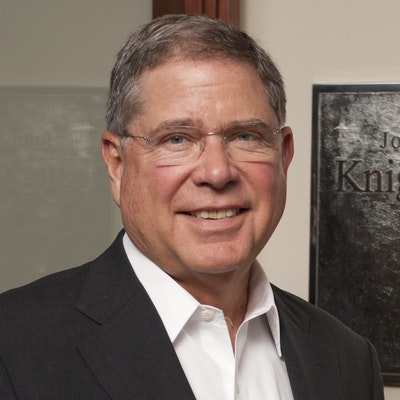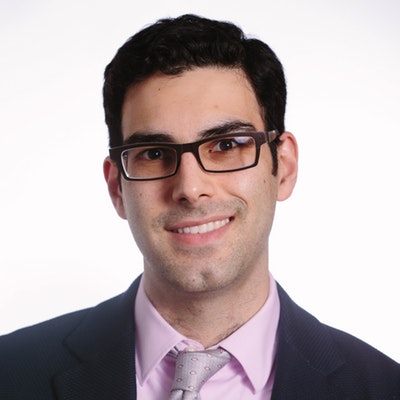
Philanthropy’s Role in Strengthening American Democracy: A Diverse Agenda
What is the most important challenge or opportunity facing American democracy over the next ten years? What role can philanthropy play in addressing that challenge—or in seizing the opportunity?
This volume explores answers to these two urgent questions.
We are not disinterested observers. The Kettering Foundation and the Knight Foundation are independent organizations that invest private funds in pursuit of the public interest. Both foundations operate on a core belief that an informed citizenry is critical for an effective democracy, and we fund a range of ways to get there.
Paradoxically, things seem to be changing very quickly and very slowly at once. Across the ideological spectrum, there is heightened anxiety that our democratic enterprise is imperiled. Our own polling shows Americans divided and suspicious of each other. A deadly pandemic continues to rage, endangering public health and the economy. A historic swell of protests in response to endemic anti-Black racism has produced a moment of reckoning—and new tensions. And we have yet to come to grips with how to deal with social media and modern systems of communication.
Many of these challenges—deep inequality of wealth, persistent discrimination in access to opportunity, the hollowing out of institutions, the digital intermediation of society—are decades in the making and will require years to unravel.
Rebuilding and reforming our democracy will require interventions that respond to both our near-term challenges and the underlying long-term phenomena. We need to get control of Covid-19. We need to provide economic relief to struggling Americans. We need to ensure free and fair elections and get back to a point where the results are regarded as legitimate by the vast majority of Americans. We need immediate action to reverse racial oppression. Addressing these challenges now is necessary.
Necessary—but not sufficient. We must also do the hard, involved work of structural reform. There is substantial and reasonable debate about what this process entails and whose interests it should serve. There is less debate about the need: vast swaths of the American public believe our institutions are failing.
Some features of our democracy should be reimagined, not just reformed. This imperative is most profound in response to the ways that technology and, in particular, social media have reordered our lives. The reality of always-on, many-to-many, ubiquitous, often anonymous communication has upended centuries of assumptions about information, truth, knowledge, and association. How creatively our democracy responds may well determine its vitality and longevity.
Given these many issues and questions, it’s no surprise that the essays in this collection present a diverse set of responses, both to the priority of challenges and to the role of philanthropy.
Contributed by scholars, thinkers, and practitioners from diverse disciplines and viewpoints, the essays in this volume tug on many threads—some familiar and some new—at the intersection of democracy and philanthropy.
Brian Hooks of Stand Together and the Charles Koch Foundation and Antonia Hernández of the California Community Foundation each argue, albeit in different ways, for a comprehensive restructuring of institutions and civil society. Scholars Francis Fukuyama and K. Sabeel Rahman provide practical agendas for reform: Fukuyama’s to revitalize the public sector and Rahman’s to reverse the concentration of power in our economy. Several authors focus on organizing, gathering, and engaging. Stanford University’s Lucy Bernholz argues for the creation of new spaces for gathering, especially in a digital context. Martha McCoy of Everyday Democracy encourages building new civic infrastructure for connection and engagement, with an explicit focus on racial justice. University of Chicago political scientist Cathy J. Cohen exhorts philanthropy to build and sustain new movements of protest to put an end to the killing and exclusion of Black Americans.
Many authors focus on polarization and its consequences for our democracy. Yascha Mounk of Johns Hopkins University offers prescriptions to restrain populist movements. Daniel M. Rothschild of the Mercatus Center suggests how philanthropy can depoliticize expert knowledge. Political scientist Shanto Iyengar condemns “affective” polarization—disdain for the other side—while Talia Stroud sees promise in practices that deliberately bridge these divides. Brown University’s Melvin Rogers recalls John Dewey to inspire us to renew our democratic culture and Emily Chamlee-Wright of the Institute for Humane Studies offers a recipe for civil but critical exchange. Yuval Levin of the American Enterprise Institute asks us to recover the “we,” a common purpose and identity in a pluralistic society.
Some authors explicitly address the nature, structure, and aims of philanthropy. Janet Tran of the Ronald Reagan Presidential Foundation and Institute discusses foundations’ homogeneity, both demographically and ideologically. Data and Society Research Institute’s danah boyd and Janet Haven caution against “techno-solutionism”—the idea that technology can solve all problems. And two scholars who have written extensively on technology, Safiya U. Noble of UCLA and Mary Anne Franks of the University of Miami, both press radical cases for philanthropy to dismantle itself (in a sense) by reversing the kinds of wealth accumulation that make independent foundations possible.
Should we be hopeful about the future of democracy and philanthropy? For democracy, the many challenges cited suggest our system is in a deep rot. But they could also be taken to suggest that our democracy is in a state of change, with an opportunity to emerge more resilient. We prefer to think it’s both: the challenges are real and deep, but so is the promise of renewal.
We also believe that philanthropy can help accelerate the reimagining of our democracy. Philanthropy can be a part of the solution, if it is open to continually rethink its own assumptions about how and where to be most effective. Experience tells us that we are not the ideal investors for every solution. We do our best work when we target challenges that exceed our means, and we make change most effectively when we leverage or accelerate trends in society.
One idea not directly represented in the essays that we at Knight Foundation believe belongs on the list of urgent challenges for which philanthropy is well suited to make a difference is the collapse of local news.
Our country’s vastness, combined with its regionalism and our proud sense of rugged individualism, makes America a parochial nation. We remain rooted in and connected to the places in which we live.
This helps explain why local news plays such a vital role in this country. Without local news, you can’t know who you’re voting for, or what issues, challenges, and opportunities are facing your community. Local news cools the heat of national partisan shouting matches. Our foundation is the legacy of John S. and James L. Knight, who built one of the largest and most successful newspaper companies in the middle of the last century—a collection of proud, independent-minded local papers. The Knight brothers believed that a well-informed community could best determine its own true interests and was essential to a well-functioning, representative democracy. In other words, they believed local news was crucial to democracy.
Today, the business model for local news has collapsed, but the values that animated it have never been more relevant.
In partnership with Gallup, we recently surveyed 20,000 Americans for their views on the media. We found that the news has become yet another battlefield in the partisan war of all against all for the future of the country. The survey found that an overwhelming majority (83%) of Americans believe news coverage is politically biased. Many see animus: 74% say the news organizations they distrust are trying to persuade people to adopt a certain viewpoint; 9% say the news organizations they distrust are trying to ruin the country. Many believe perceived inaccuracies are intentional—52% believe reporters misrepresent facts and nearly a third (28%) say reporters make up facts entirely.
We know that local news is more trusted than national news. And, as our polling revealed, local news spurs civic engagement. Those who follow local news closely are more likely to say they feel attached to where they live, more likely to know how to volunteer and get involved in the community, and more likely to vote regularly. Those who follow local news closely are less likely to express the belief that they have no say in government.
We therefore would add to the thoughtful suggestions in this collection our recommendation for philanthropy to address the challenge of rebuilding local news. More specifically, to invest in the identification, support, and growth of sustainable local news business models. It is a priority for us at Knight Foundation, and we’re ready to partner with other philanthropic organizations who share our commitment.
There is no shortage of fatalism about the future of local news. The lamentations are familiar: the audience is aging out, there’s no money in advertising, the business cannot scale. We agree that many of the basic assumptions that made the great reporting and great profits of the last century possible will undoubtedly need to be revisited. The future (and present) is digital, which means a different relationship to the audience and a different product. Subscriptions may eclipse advertising as the most significant source of revenue. This will bring new challenges: attracting and retaining digital subscribers requires different skills and capabilities than the same exercise in the world of newsprint.
But what sector is immune from self-reflection in the twenty-first century? If there is a single takeaway from the essays in this volume, it is that our current institutions, structures, and conventions are not getting the job done.
If there’s another, it is that the role for philanthropy in preserving and strengthening our democracy is a rich terrain. There is much to be done. Different foundations will take different approaches. That’s what foundations do—and do well. But sitting this one out is not an option.

Alberto Ibargüen
